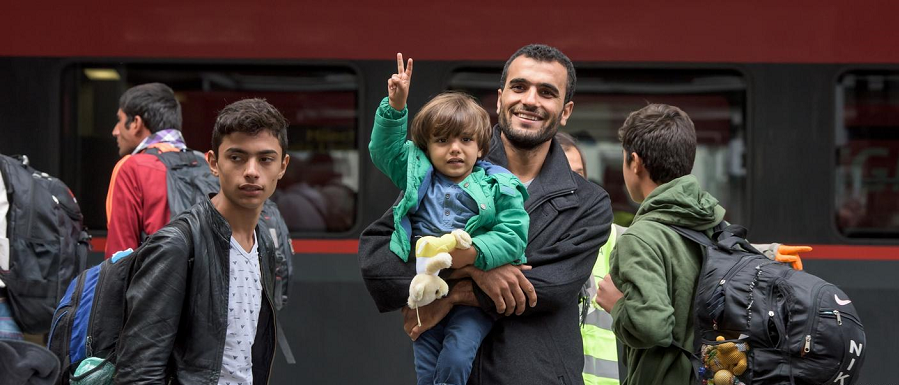After Germany conducted several deportations to Bulgaria, refugee assistant Stefan Reichel described the poor conditions faced by refugees in asylum camps there as terrifying. In an interview with the German newspaper Taz, he also criticized the government’s strict policies toward refugees.
The refugee assistant spent ten days in Bulgaria with a group of assistants and asylum experts from the Church Asylum Organization. Their goal was to verify the numerous reports regarding the poor conditions of refugee reception centers in Bulgaria, as well as the extent of mistreatment experienced by refugees, particularly those from Syria and Afghanistan.
The church group met with representatives of the Bulgarian authorities, lawyers, charity workers, and several refugees at the Harmanli Center, Bulgaria’s largest refugee facility. According to Reichel, reports of the dire conditions in refugee centers and detention facilities are accurate.
He noted that the funds allocated to the camp are approximately 3 euros per refugee per day—a meager amount that falls far short of meeting basic needs. Reichel highlighted the harsh treatment refugees endure, including severe beatings, arrests, and imprisonment. Additionally, Bulgaria transfers rejected asylum seekers directly to deportation facilities, where they may be held for up to 18 months before being deported to their home countries.
Refugees with international protection, such as Syrians, already registered in Bulgaria, are sent to the airport. If they cannot find housing with special assistance, they are left with no choice but to sleep on the streets. Many are currently sleeping in a park near the Great Mosque in downtown Sofia. Additionally, these refugees cannot access legal job opportunities, and even if permanent housing is available, they can only find daily work in the black market.
Reichel also reported that refugees at the Bulgarian border often suffer severe beatings from smugglers or police. Many refugees lose their lives after getting lost in the forests. A volunteer involved in searching for refugees at the Bulgarian border mentioned that he alone recovered 57 bodies from the forest, despite only working in a small area of the southern border.
Reichel also criticized the federal government’s strict asylum policy. In response to the call by Friedrich Merz, leader of the Christian Democratic Union (CDU), and other German politicians to deport asylum seekers to Bulgaria, Reichel stated that “such a request could only come from someone who has no connection to refugees and is unaware of the reality.” He pointed out that German politicians are well aware of the difficulties involved in deportation processes.
Moreover, Reichel criticized the Federal Office for Migration and Refugees for regarding violence against refugees as a normal aspect of police activity. This perspective, he argued, encourages Bulgarian authorities to resort to violence when removing refugees. In response to the Christian Union leader’s remark suggesting it would be preferable for refugees to commit crimes outside Germany, Reichel stated, “Certainly more than 95% of Syrians are not criminals.” He emphasized that the majority of Syrian refugees are victimized by the actions of a small group of violent individuals.
He also criticized German politicians for labeling the refugee situation in Germany as a “national emergency,” which he considered absurd, and took aim at Christian Union leader Merz’s stance on migration. “I am surprised that a major political party would put forward a leading candidate who is clearly disregarding the facts,” Reichel said.
Reichel reported that he wrote to Federal Interior Minister Nancy Wieser regarding the situation of refugees deported to Bulgaria. In her response, she stated that she was unaware of the issue. In light of this, Reichel submitted 400 reports from those affected to the Federal Office for Migration and Asylum.





